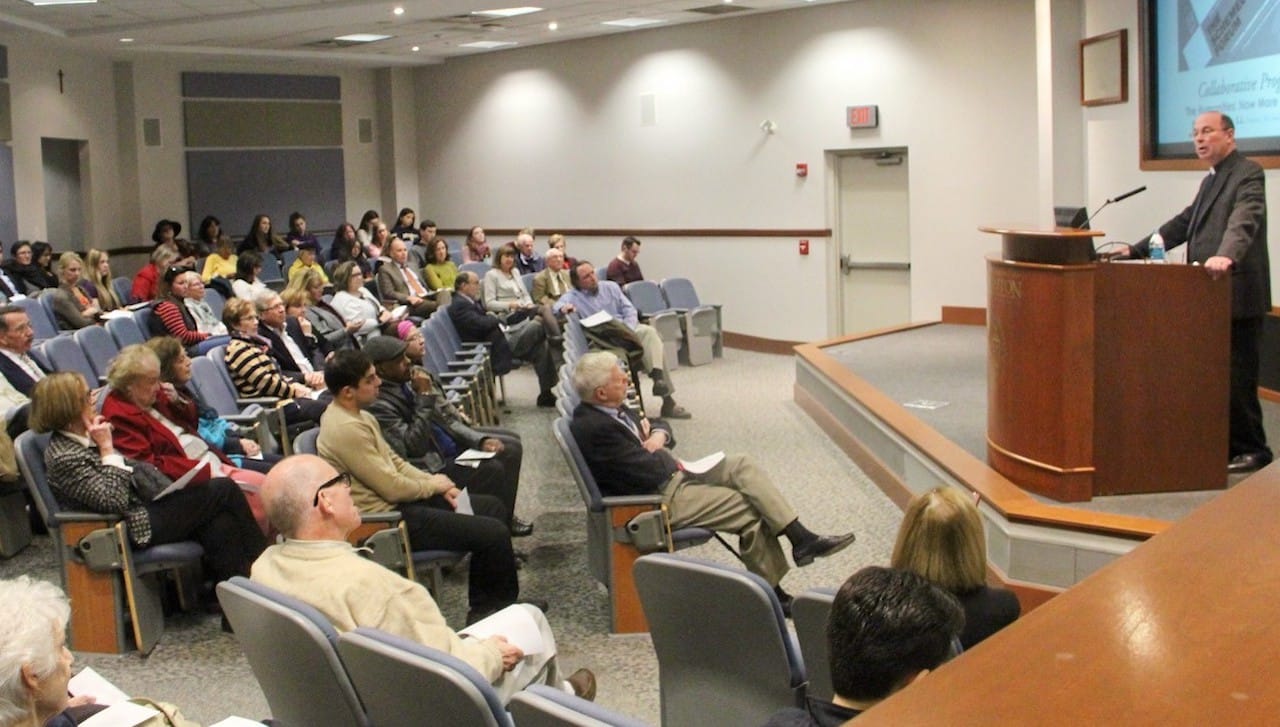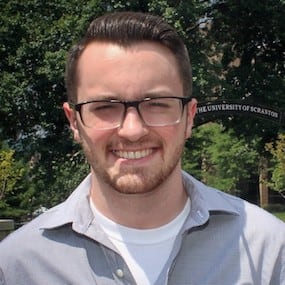Humanities Place in Higher Education Discussed

“I do not think it is an overstatement to claim that the role of the humanities and liberal arts in the contemporary university is the most pressing issue facing the president of any University, especially a Catholic and Jesuit University,” said Rev. Scott R. Pilarz, S.J., president of The University of Scranton at a talk presented by the Schemel Forum in collaboration with the Office of the President. Father Pilarz presented “The Humanities: Now More Than Ever” at the lecture held on Oct. 18 on campus.
“It is obvious, as it has been for some time, that humanities and liberal arts are on the run across the landscape of American higher education and, in fact, American culture at large,” Father Pilarz said.
Humanities and liberal arts classes have been decreasing in most colleges and universities across America, according to Father Pilarz. He made a case for
“Ignatius returned to school in his 30s to learn Latin. Subsequently, he studied at several European universities but found the model of education at those universities wanting,” Father Pilarz said. “Instinctively, Ignatius wanted a more
Ignatius found this rounded education at the University of Paris and lived in Paris for seven years.
“Throughout his years in Paris, Ignatius and his companions encountered a radically new educational paradigm,” Father Pilarz said. “The paradigm understood education as a dynamic process and that the study of fundamental disciples, the liberal arts and humanities, would lead ultimately to greater focus on more sophisticated subjects.”
Father Pilarz discussed the two educational institutions the Jesuits used: the college and the university.
“The first was the college, which humane letters, languages and a little bit of Christian doctrine formed the curriculum,” Father Pilarz said. “The second was the university, where the higher disciplines taught logic, metaphysics, ethics, some rudimentary sciences, mathematics
This was the basis for the first Jesuit schools that allowed students to engage more in their classes, according to Father Pilarz.
“This gave to the Jesuits an organized plan for the progress of students through increasingly complex materials and a codification of pedagogical techniques designed to solicit
This gave Jesuit students, who went to these schools, a desire to take part in their community after education.
“Out of the schools, Jesuits came to understand themselves to have a role the shaping of culture,” said Father Pilarz.







